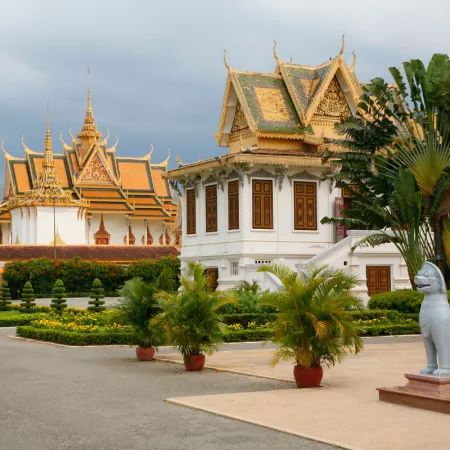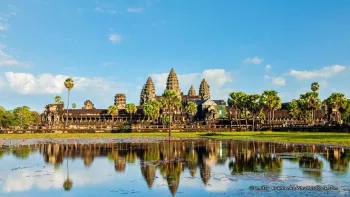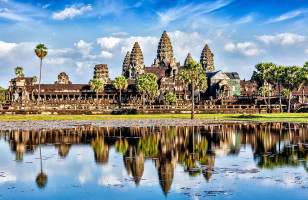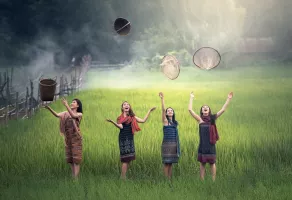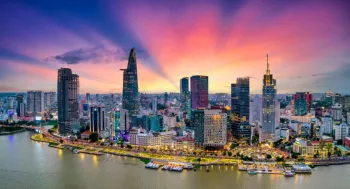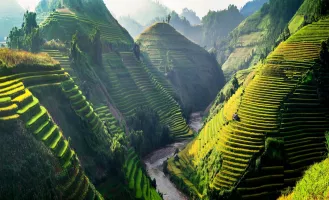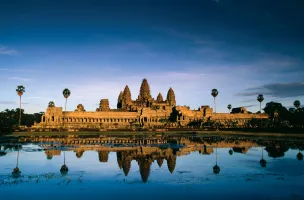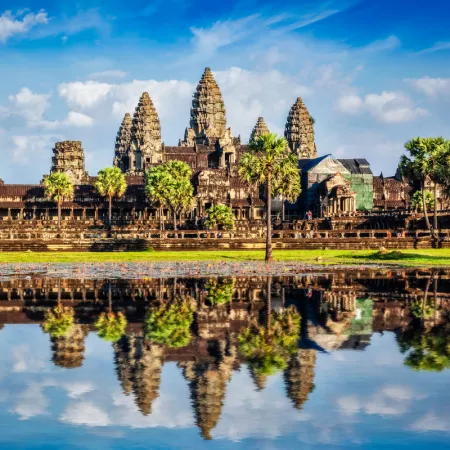
Cambodia
Duration
5 to 10 Days
5 to 10 Days
Best time to visit
Nov-Feb
Nov-Feb
Theme
Heritage
Heritage
Cambodia Travel Guide
Cambodia, located in Southeast Asia, is a country known for its rich history, stunning landscapes, and vibrant culture. Home to the magnificent Angkor Wat temple complex, Cambodia boasts a fascinating blend of ancient ruins and bustling cities. The country's turbulent past under the Khmer Rouge regime has shaped its resilient people and unique heritage. Cambodia is famous for its warm hospitality, delicious cuisine, and breathtaking sunsets over the Mekong River.Top Attractions in Cambodia
- Angkor Wat
- Phnom Penh
- Sihanoukville Beaches
- Battambang
- Tonle Sap Lake
Cambodia is Famous for
Angkor Wat - the largest religious monument in the world.Top Attractions in Cambodia
- Exploring the Temples of Angkor
- Relaxing on the Beaches of Sihanoukville
- Discovering the History of Phnom Penh
- Experiencing Khmer Cuisine
- Cruising on Tonle Sap Lake
What's Great about Travelling to Cambodia?
- Rich Cultural Heritage
- Affordable Travel Destination
- Warm and Friendly Locals
What's Not So Great about Travelling Cambodia?
- Hot and Humid Climate
- Language Barrier Outside Tourist Areas
- Some Areas Still Affected by Poverty
Travel Tips for Cambodia
- Obtain a Visa on Arrival
- Use Licensed Transportation Services
- Respect Local Customs and Traditions
Important Cambodia trip information
- Ideal Duration: 7-10 days to explore the main highlights.
- Best Time to Visit: November to March for dry and cool weather.
- Nearby Airports and Railway Stations: Phnom Penh International Airport, Siem Reap International Airport, Phnom Penh Railway Station.
Top 1 Places to visit in Cambodia
Per Person
61,900
*EXCLUDING APPLICABLE TAXES Per Person
64,500
*EXCLUDING APPLICABLE TAXES 5.0 Ratings
( 393 Reviews )
( 393 Reviews )
Per Person
56,999
*EXCLUDING APPLICABLE TAXES Per Person
41,999
*EXCLUDING APPLICABLE TAXES 5.0 Ratings
( 233 Reviews )
( 233 Reviews )
Per Person
62,999
*EXCLUDING APPLICABLE TAXES 5.0 Ratings
( 233 Reviews )
( 233 Reviews )
Per Person
62,730
*EXCLUDING APPLICABLE TAXES 5.0 Ratings
( 13 Reviews )
( 13 Reviews )
FAQ's on Cambodia
Q1: What is the best time to visit Cambodia?
The best time to visit Cambodia is during the dry season, which runs from November to April. This period offers pleasant weather for exploring the country, visiting temples, and enjoying outdoor activities. However, the peak tourist season is from November to February when the weather is cooler. If you want to avoid crowds, consider traveling during the shoulder months of October and April. Be aware that the wet season from May to October brings heavy rainfall, particularly from June to September, which can affect travel plans.
Q2: Do I need a visa to travel to Cambodia?
Yes, most visitors to Cambodia need a visa to enter the country. Tourists can obtain a visa on arrival at the airport or border crossings, or apply for an e-visa before traveling. Make sure your passport is valid for at least six months from the date of entry. Some nationalities are exempt from visa requirements or may have visa-free access for a limited period, so check the latest information from the Cambodian embassy or consulate.
Q3: What are the must-visit attractions in Cambodia?
Cambodia is renowned for its ancient temples, with Angkor Wat being the most famous. Other must-visit attractions include the Bayon Temple, Ta Prohm, and Banteay Srei. Explore the capital city Phnom Penh for the Royal Palace, Tuol Sleng Genocide Museum, and the Killing Fields. Don't miss the beautiful beaches in Sihanoukville, the floating villages of Tonle Sap Lake, and the vibrant markets across the country.
Q4: Is Cambodia a safe place to travel?
Cambodia is generally a safe destination for travelers, but like any other country, it's essential to stay vigilant, especially in crowded areas and tourist spots where petty theft can occur. Avoid walking alone at night, particularly in dimly lit areas. While the overall crime rate is low, it's advisable to keep your belongings secure and be cautious of scams. Some remote border areas may have landmines, so stick to well-trodden paths and avoid venturing into unknown territories.
Q5: What is the local currency in Cambodia and can I use credit cards?
The local currency in Cambodia is the Cambodian Riel, but the US Dollar is widely accepted, especially in tourist areas. ATMs are prevalent in major cities and tourist hubs, dispensing US Dollars. Credit cards are accepted in upscale hotels, restaurants, and shops, but it's advisable to carry cash for smaller establishments and markets. Inform your bank of your travel plans to prevent any issues with card transactions.
Q6: What is the local cuisine like in Cambodia?
is a delightful mix of flavors influenced by neighboring countries like Thailand and Vietnam. Must-try dishes include Fish Amok (a coconut milk curry), Lok Lak (stir-fried beef), and Nom Banh Chok (rice noodle soup). Fresh seafood from coastal regions, tropical fruits, and fragrant herbs are staples in Cambodian cooking. Be cautious of street food hygiene and opt for bottled water to stay safe. Vegetarian and vegan options are available in tourist areas.
Q7: What transportation options are available in Cambodia?
Transport options in Cambodia include buses, tuk-tuks, taxis, and motorbike rentals. Public buses connect major cities and towns, while tuk-tuks are convenient for short distances and sightseeing. Taxis are available in cities like Phnom Penh and Siem Reap, but negotiate fares beforehand. Renting a motorbike is a popular choice for exploring remote areas, but ensure you have the necessary licenses and insurance. Boat services operate on rivers and to destinations like Koh Rong Island.
Q8: Are there any cultural norms or etiquette I should be aware of when visiting Cambodia?
When visiting Cambodia, it's important to respect local customs and traditions. Dress modestly when visiting temples and religious sites, covering your shoulders and knees. Remove your shoes before entering someone's home or a place of worship. Greet locals with a polite 'Chum reap suor' (hello) and show respect to elders. Avoid public displays of affection, especially in rural areas. Bargaining is common in markets, but do so politely. Remember to never touch someone's head, as it's considered the most sacred part of the body.
Q9: I am a travel agent. How can I buy travel leads of Cambodia?
Register yourself as a travel agent at agents.tripclap.com and then you can buy travel leads to Cambodia once your account is approved. For more details contact our support team at +91-8069186564 or support@tripclap.com
